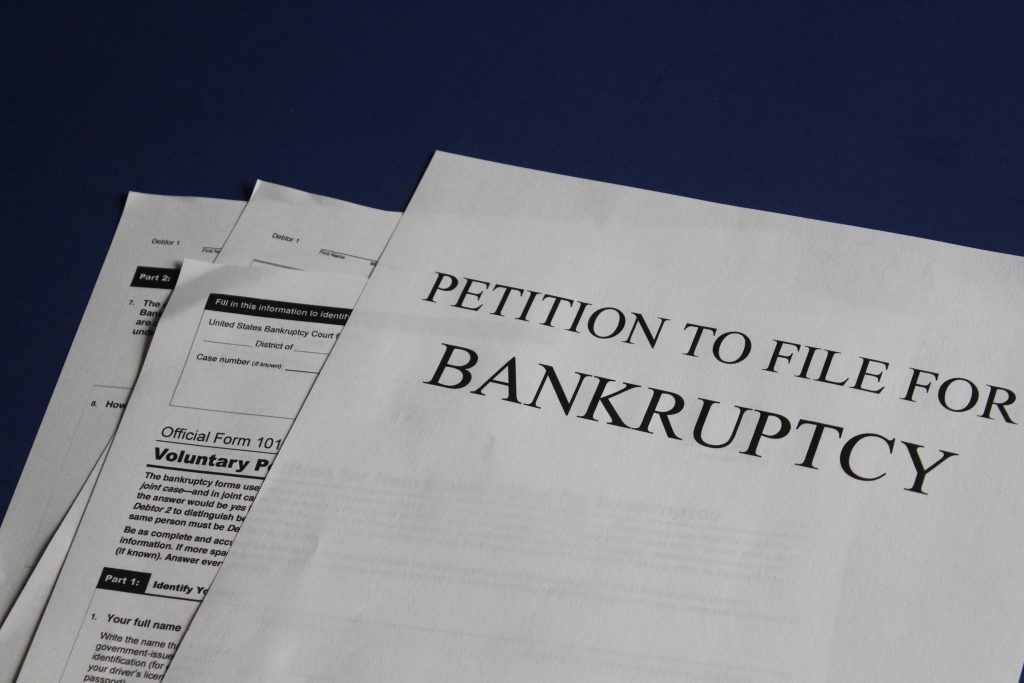
The novel coronavirus pandemic has caused many businesses to temporarily shut down or scale back operations. Slowly, states are allowing businesses to reopen to the public. But it may be too late for some businesses to bounce back. As a result, the number of businesses filing for bankruptcy is expected to skyrocket this summer.

Two recent changes to the U.S. Bankruptcy Code may provide greater relief for small businesses that seek to use the bankruptcy process to reorganize their finances and continue operating. The Small Business Reorganization Act (SMRA) increases access to Chapter 11 for small businesses. The Coronavirus Aid, Relief, and Economic Security (CARES) Act raises the debt threshold that qualifies for this protection. Here’s what small business owners should know.
SMRA Basics
Effective on February 19, 2020, the SMRA creates a new subchapter (Subchapter V) of the Bankruptcy Code. To be eligible for relief under Subchapter V, a debtor, whether an entity or an individual, must have total debt not exceeding $2,725,625 (subject to adjustment every three years). The SMRA contains provisions for the following key improvements:
Streamlined reorganizations: The new law will facilitate small business reorganizations by eliminating certain procedural requirements and reducing costs. Significantly, no one except the business debtor will be able to propose a plan of reorganization. Plus, the debtor won’t be required to obtain approval or solicit votes for plan confirmation. Absent a court order, there will be no unsecured creditor committees under the new law. The new law also will require the court to hold a status conference within 60 days of the petition filing, giving the debtor 90 days to file its plan.
New value rule: The law will repeal the requirement that equity holders of the small business debtor must provide “new value” to retain their equity interest without fully paying off creditors. Instead, the plan must be nondiscriminatory and “fair and equitable.” In addition, similar to Chapter 13, the debtor’s entire projected disposable income must be applied to payments or the value of property to be distributed can’t amount to less than the debtor’s projected disposable income.
Trustee appointments: A standing trustee will be appointed to serve as the trustee for the bankruptcy estate. The revised version of Chapter 11 allows the trustee to preside over the reorganization and monitor its progress.
Administrative expense claims: Currently, a debtor must pay, on the effective date of the plan, any administrative expense claims, including claims incurred by the debtor for goods and services after a petition has been filed. Under the new law, a small business debtor is permitted to stretch payment of administrative expense claims over the term of the plan, giving this class of debtors a distinct advantage.
Residential mortgages: The new law eliminates the prohibition against a small business debtor modifying his or her residential mortgages. The debtor has more leeway if the underlying loan wasn’t used to acquire the residence and was used primarily for the debtor’s small business. Otherwise, secured lenders will continue to have the same protections as in other Chapter 11 cases.
Discharges: The new law provides that the court must grant the debtor a discharge after completing payments within the first three years of the plan or a longer period of up to five years established by the judge. The discharge relieves the debtor of personal liability for all debts under the plan except for amounts due after the last payment date and certain nondischargeable debts.
CARES Act Provision
In addition to the improvements under the SMRA, Congress decided to temporarily increase the debt ceiling for eligibility to $7,500,000 from $2,725,625 for new Subchapter V cases filed between March 28, 2020, and March 27, 2021. Thereafter, the debt limit will revert to $2,725,625.This change will make more small businesses eligible for Chapter 11 in the midst of the novel coronavirus crisis. However, the CARES Act permanently eliminates the eligibility to file for Subchapter V relief for any affiliate of a public company.
We Can Help
Businesses contemplating bankruptcy often benefit from the input of an experienced business valuation expert. Specialists with experience in accounting, valuation and mergers and acquisitions can help assess the severity of the financial crisis, determine whether liquidation or reorganization makes sense, and provide financial insight on everything from selling assets to shareholder disputes. Contact one of Advent’s business valuation professionals to facilitate the bankruptcy process and, if possible, get your business back on track.
© 2020, Powered by Thomson Reuters Checkpoint
